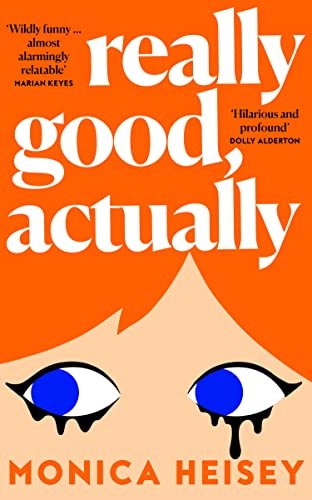Heisey's debut novel is a lighthearted and funny modern story with the kind of high “relatability” factor found in the tradition of “Bridget Jones's Diary” and “Heartburn”. Maggie is fast approaching 30 and her marriage to Jon has just ended. There was no big dramatic breakdown in their relationship; it just stopped working. And while Maggie wants to strive for a “Good Divorce” her life slowly spirals out of control even as she desperately tries to hold it together. Plans for self improvement with mental and physical wellbeing regimes frequently falter. Her experiences on dating apps veer from amusing to cringe. She engages in late-night online shopping binges which result in unsustainable hits to her dwindling bank account and her need to return many items. She is pursuing a post-graduate degree in Shakespearean studies, but isn't so devoted to it or her teaching to find them fulfilling. Maggie's loyal circle of friends and a new fellow divorcee bestie grow impatient with her. And the more she strives for an amicable break from Jon the more distant and silent he becomes. In essence, her story captures how she's approaching a time in her life when everything should be coming together but instead it appears to be rapidly falling apart.
As a former screenwriter on the excellent sitcom 'Schitt's Creek', Heisey's skills at writing awkward comedy really come through in the narrative. There's plenty of bad logic humour with lines such as “Tragically I was the victim of a supportive home life” and Maggie's musing that her brief romantic forays with other women mean “I’m not sure I’m bisexual enough to count.” Personally, I feel there's no better comedy than a sad blundering threesome scene and this novel contains an excellent one. There is plenty in this story which made me chuckle in appreciation – if not laugh out loud. I enjoyed the creative approach of interspersing Maggie's account with revealing text exchanges, Google searches and fantasy interludes which further reinforce how little control she has while trying to keep it together. Also, there are some wonderfully cutting scenes where other characters reveal just how wacky Maggie's behaviour has become in a way that she herself hasn't divulged to readers.
The trouble is that the novel begins to feel too drawn out as Maggie becomes eminently unlikeable with an increasingly unbelievable lack of self-awareness. This partially undercuts the more meaningful message of the book about a newly independent woman learning to love herself. As sympathetic as Maggie is with her restlessness, body issues and contemporary romantic problems, I wanted to like her more. Certainly unlikeable central characters are a stalwart of great stories and offer a lot of potential for great comedy, but it ultimately felt like Heisey sacrificed her protagonist's integrity by striving to get more jokes in. It's an issue similar to what I found in reading “Eleanor Oliphant is Completely Fine”. I definitely found Heisey's novel funny and enjoyable, but while it's unquestionably heartfelt it doesn't quite capture all the emotion it could have.








